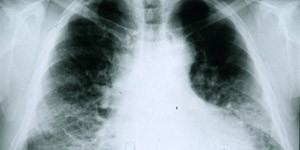By José Carlos Bouso

José Carlos Bouso is a clinical psychologist and a doctor of pharmacology. His areas of interest are psychopharmacology and the therapeutic properties of entactogens, psychedelics and cannabis. He has conducted therapeutic research with MDMA, pharmacological research with several substances of plant and synthetic origin and has also performed studies on the long-term neuropsychological effects of substances such as cannabis, ayahuasca and cocaine. He is author of the book "Qué son las drogas de síntesis" [What are synthetic drugs?], and co-author of “¿La marihuana como medicamento? Los usos médicos y terapéuticos del cannabis y los cannabinoides" [Marihuana as medicine? The medical and therapeutic uses of cannabis and cannabinoids] and "Ayahuasca y salud" [Ayahuasca and health]. His research has been published in scientific journals. He is currently the director of scientific projects at Fundación ICEERS.
From treatment of symptoms to a subjective approach to disease
The medical properties of cannabis and cannabinoids to treat numerous pathologies ranging from chronic pain to autoimmune diseases such as multiple sclerosis have been demonstrated in hundreds of clinical trials conducted on thousands of patients.1 Nonetheless, for most diseases for which they have been tested, the level of evidence for their effectiveness is far from optimal2 and they are therefore unlikely to become drugs of first choice, at least in the near-to-medium term future.
Most clinical trials are conducted with small samples and do not always use the same measurements to assess the main variables. Furthermore, even in the best-conducted clinical trials with the largest numbers of patients –as for example with nabiximol (Sativex) in the treatment of spasticity in multiple sclerosis patients,3 the therapeutic effects of cannabis are inter-individually inconsistent: whereas some patients respond acceptably well to treatment with cannabinoids, others (approximately half), do not respond so well. Finally, because of the administrative difficulties involved in performing clinical trials with cannabis, most studies have been carried out with pure cannabinoids, either isolated from the plant or of synthetic origin. There is currently great disagreement as to whether pure cannabinoids are as effective and well-tolerated as the herbal form. Some researchers argue that the different cannabinoids, with their terpenes and flavonoids, act by "cooperating" to achieve a final result that is better in terms of effectiveness and tolerability than in the pure forms. This is what is known as the "entourage" effect.4
However, medicine is not only about treating the somatic symptoms of a disease. Until some years ago, doctors thought that pain was consubstantial to the disease and that the patient had no choice but to learn to live with it (i.e. to 'grin and bear it') while the associated symptoms were treated as well as possible. Over the years, however, medical practice has gradually seen the importance of the individual patient's experience of their disease, realising that pain is just another symptom which needs to be treated regardless of whether that treatment helps cure the disease. Today nearly all hospitals have pain units, something which would have been unthinkable a few decades ago.
Similarly, ever greater importance is being given to addressing diseases in the round, taking into account not only the physical symptoms (whether or not they are directly related to the disease), but the subjective way in which each specific patient, individualised and attended personally, faces their disease. This is what is known as Health-Related Quality of Life (HRQoL).
HRQoL: definition and basic concepts
In 1994 the World Health Organisation (WHO) defined quality of life as "individuals' perceptions of their position in life in the context of the culture and value systems in which they live and in relation to their goals, expectations, standards and concerns".5 Since then, the approach to disease no longer consists (or at least, it should not) solely of looking at the symptoms of people with diseases, but in understanding how they live their disease within their social and cultural context and in relation to their values and even spiritual beliefs. In this regard, HRQoL is founded on three basic and inalienable, principles each derived from the previous one:
- Health must be viewed from the subjective perception of the patient;
- In this regard, health and treatment must be patient-centred not disease-centred; and
- This means that treatment must properly take into account the beliefs, values and transcendental concerns of individuals. In a HRQoL perspective, the patient stands at the centre of the system, not their symptoms, their diagnosis or their disease.
Indeed, HRQoL covers at least seven different dimensions of the person, of which the symptoms are just one, no more or less important than all the others:
- Physical performance: degree to which health limits physical activities such as personal care, walking, climbing stairs, carrying weight and moderate and intense efforts.
- Emotional performance: degree to which psychological suffering, a lack of emotional wellbeing, anxiety and depression interfere with everyday activities.
- Social performance: degree to which problems of physical or mental health interfere in habitual social life, with family, friends and neighbours.
- Functional role: degree to which health interferes with work and other everyday activities, including the performance and type of community activities.
- Cognitive performance: degree to which cognitive problems interfere with work or everyday activities.
- Perception of general health and wellbeing: personal assessment of health which includes current health, perspectives and resistance to becoming ill.
- Symptoms: specific to each disease.
Cannabis and quality of life
If we view health from the perspective of quality of life, we see that while cannabis may not –in the short-to-medium term– become a drug of first choice for the treatment of many diseases for which it has proved useful, it may have a very clear function of incalculable value in improving the quality of life of people suffering from chronic diseases. Dr Franco Grotenhermen writes:
"If cannabis is used as a medicine, the danger of a psychological dependence developing is minimal. A temporary alteration of mood, distancing from pain and suffering and the artificial achievement of a feeling of happiness all make sense in the case of serious diseases, since they give patients strength and their life takes on value in itself."6
Perhaps the clearest example of the use of cannabis in improving the quality of life of some groups of patients is its use in reducing nausea, vomiting and other side effects associated with chemotherapy. A recent study also found that patients with carcinomas of the head and neck better tolerated radiotherapy when they used cannabis.7 Another of cannabis's increasingly demonstrated positive impacts on quality of life is its use in lowering the amount of prescription drugs patients require8, with the subsequent benefit in reducing the side effects resulting from medication. One recent study of the medication taken by a group of 184 patients with chronic pain before and after starting cannabis use found a spectacular reduction in the use of opiates (from 119 who used them before cannabis treatment to 33 after), non-steroid pain-killers (from 115 to 38), anti-rheumatic drugs, anti-depressants and others.9 This same phenomenon has been seen in another study in which a group of patients were found to replace pharmaceuticals for pain, anxiety and insomnia with cannabis use.10 There are also numerous studies based on surveys among dispensary patients in countries in which medicinal cannabis is legal showing that over half of patients replaced their prescription drugs with cannabis.11 Indeed, in US states that have legislated on medicinal cannabis, there has been a reduction in the number of deaths from opiate overdose in the last ten years as compared to states with no such legislation.12
Perhaps the one area in which cannabis use scores best in HRQoL is among patients with chronic pain. In a study conducted in Spain on the effects of cannabis in HRQoL amongst a group of women with fibromyalgia, cannabis was found to improve the mental health component and symptoms related to fibromyalgia when intensity was assessed just before and after cannabis use.13 In a prospective study with patients suffering chronic pain, cannabis was found to improve general pain, although not improving pain scores when pain above and below the lumbar region was separated. However, the most marked effects have been found in the improvement of social and family relations, in emotional role functioning and in improving sleep, and the most intense effect was in satisfaction with treatment.14 In this regard, cannabis's effect on quality of life is not only to improve the patient's personal and social wellbeing, but to improve adhesion and satisfaction with treatment.
There is still much to be learned about the effects of cannabis on HRQoL. This is a new field in which work has only recently begun and not all studies are conclusively positive. A recent review containing a meta-analysis (a statistical method to analyse results from different studies) reviewed all published articles assessing HRQoL during treatment with cannabis and cannabinoids.15 Only twenty articles met the quality criteria for assessment. The results were contradictory, since not all studies found an improvement in HRQoL. The most consistently positive results were in patients with chronic pain. The other interesting finding was an improvement in HRQoL among patients who used herbal cannabis as compared to those using pure cannabinoids.
In conclusion
Cannabis may not be a drug of first choice for treating the symptoms and diseases for which it has proved useful, but increasingly, its medical use is focusing less on the treatment of symptoms and diseases and more on improving the HRQoL of patients. There are still not many studies assessing the utility of cannabis in the HRQoL of patients with chronic diseases, study samples are few and it is difficult to reach any definitive conclusions. What does appear increasingly clear is that while not all patients respond well to treatment with cannabis and/or cannabinoids, those who do, respond very well. The same appears to be true of its use to improve HRQoL: the results are inconclusive but they do indicate that cannabis, with all its cannabinoids, terpenes and flavonoids is superior to isolated cannabinoids and that there are groups of patients for whom it is particularly well suited. They also show that it enables them to reduce the use of other medicines, with the resulting benefit in terms of the direct impact on their health and that it enables them to tolerate their illness with the dignity that should be afforded to any patient, beyond medical treatment aimed strictly on controlling the symptoms.
References:
1. A list of all the studies published to date can be found at: http://www.cannabis-med.org/index.php?tpl=page&id=37&lng=es
2. Whiting PF, Wolff RF, Deshpande S, Di Nisio M, Duffy S, Hernandez AV, Keurentjes JC, Lang S, Misso K, Ryder S, Schmidlkofer S, Westwood M, Kleijnen J. 2015. Cannabinoids for Medicinal Use: A Systematic Review and Meta-analysis. JAMA. 313(24):2456-73.
3. Saccà F, Pane C, Carotenuto A, Massarelli M, Lanzillo R, Florio EB, Brescia Morra V. 2016. The use of medical-grade cannabis in patients non-responders to Nabiximols. J Neurol Sci. 368:349-51.
4. Russo EB. 2011. Taming THC: potential cannabis synergy and phytocannabinoid-terpenoid entourage effects. Br J Pharmacol. 163(7):1344-64.
5. Doris A, Byron H. 2005. Construcción cultural del concepto calidad de vida. Revista Facultad Nacional de Salud Pública [online]. http://www.scielo.org.co/scielo.php?script=sci_arttext&pid=S0120-386X2005000100008
6. Grotenhermen F. 2008. Cannabis como medicamento. Barcelona: Cáñamo Ediciones, pg. 111.
7. Elliott DA, Nabavizadeh N, Romer JL, Chen Y, Holland JM. 2016. Medical marijuana use in head and neck squamous cell carcinoma patients treated with radiotherapy. Support Care Cancer. 24(8):3517-24.
8. Corroon JM Jr, Mischley LK, Sexton M. 2017. Cannabis as a substitute for prescription drugs - a cross-sectional study. J Pain Res. 10:989-998.
9. Boehnke KF, Litinas E, Clauw DJ. 2016. Medical Cannabis Use Is Associated With Decreased Opiate Medication Use in a Retrospective Cross-Sectional Survey of Patients With Chronic Pain. J Pain. 17(6):739-44.
10. Piper BJ, DeKeuster RM, Beals ML, Cobb CM, Burchman CA, Perkinson L, Lynn ST, Nichols SD, Abess AT. 2017. Substitution of medical cannabis for pharmaceutical agents for pain, anxiety, and sleep. J Psychopharmacol. 31(5):569-575.
11. Numerous survey-based studies have been published showing a reduction in the use of prescriptions drugs among cannabis users in American and Canadian dispensaries. For example: Reinarman C, Nunberg H, Lanthier F, Heddleston T. 2011. Who are medical marijuana patients? Population characteristics from nine California assessment clinics. J Psychoactive Drugs. 43(2):128-35.
12. Bachhuber MA, Saloner B, Cunningham CO, Barry CL. 2014. Medical cannabis laws and opioid analgesic overdose mortality in the United States, 1999-2010. JAMA Intern Med. 174(10):1668-73.
13. Fiz J, Durán M, Capellà D, Carbonell J, Farré M. 2011. Cannabis use in patients with fibromyalgia: effect on symptoms relief and health-related quality of life. PLoS One. 6(4):e18440.
14. Haroutounian S1, Ratz Y, Ginosar Y, Furmanov K, Saifi F, Meidan R, Davidson E. 2016. The Effect of Medicinal Cannabis on Pain and Quality-of-Life Outcomes in Chronic Pain: A Prospective Open-label Study. Clin J Pain. 32(12):1036-1043.
15. Goldenberg M, Reid MW, IsHak WW, Danovitch I. 2017. The impact of cannabis and cannabinoids for medical conditions on health-related quality of life: A systematic review and meta-analysis. Drug Alcohol Depend. 174:80-90.


